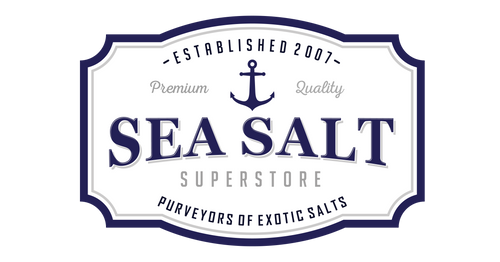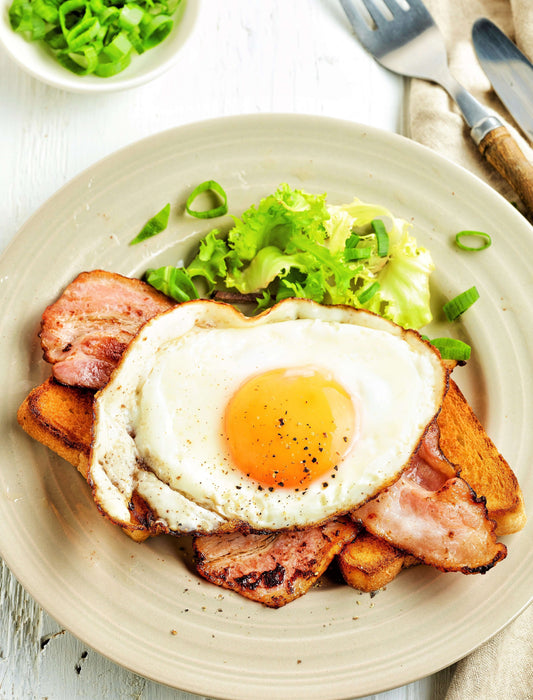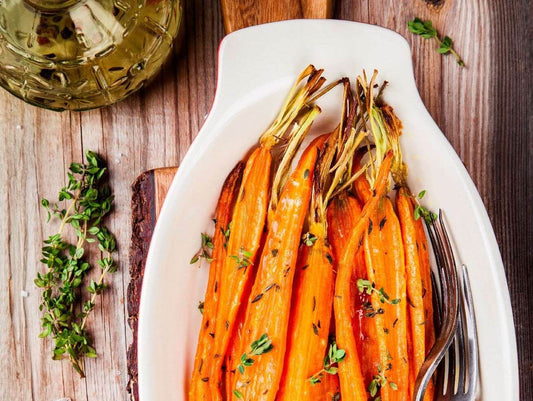Using salt for pickling is a common and effective method to preserve and flavor various fruits and vegetables. The process of pickling involves immersing food items in a solution of salt and water or vinegar, creating an environment that inhibits the growth of spoilage-causing bacteria while allowing beneficial bacteria to thrive. This preservation technique not only extends the shelf life of the food but also imparts a tangy, sour, or briny taste. But how does it work, and which salt is best?
Here's how pickling salt works, and which salt is best for pickling your vegetables and fruits.
First, a quick primer on how to use pickling salt. Generally, pickling consists of four elements: salt, water, vinegar, and flavorings/spices. The salt and water, when salt is at a 5% concentration or more, create an environment that keeps bacteria from growing and allow other beneficial processes to move forward (more on that below). Vinegar is commonly used as well to add acid to that environment, which adds that distinctive sour taste and assists with inhibiting bacterial growth. Finally, the flavorings and herbs - such as dill, garlic, peppercorns, and mustard seeds - are usually added to the saltwater or brine solution, and add a punch of flavor to what's being pickled.
All of those elements are boiled together, and then poured into a sterlized canning jar with crisp vegetables tightly packed inside. The jar is sealed, and left in a cool place for at least a couple of weeks.
So how does all this work, and why is it important to get the right salt?

SALT CONCENTRATION
For most recipes, the saltwater or brine solution needs to have a salt concentration of at least 5%. Some recipes will call for more salt, depending on the recipe. The 5% or more is really important, as it provides an optimal balance between preservation and flavor development. This concentration helps to create an inhospitable environment for spoilage bacteria, while allowing desirable lactic acid bacteria to thrive and carry out the fermentation process.
MOISTURE & MICROORGANISMS
Going way back to chemistry class, osmosis is a process that occurs when two solutions of different concentrations are separated by a semipermeable membrane. In the case of pickling, when salt is applied to vegetables or fruits, it draws out moisture through osmosis. This extraction of water helps to create a hypertonic environment (high salt concentration) that inhibits the growth of microorganisms.
By limiting the amount of water required by bacteria and other microorganisms to grow and reproduce, salt helps to extend the shelf life of the pickles by inhibiting spoilage. It also maintains the crispness of pickled vegetables by strengthening their cell walls, so that they don't become mushy.
FERMENTATION
There is a fermentation process during pickling, but it's unlikely to create much alcohol! Rather, in the presence of salt, beneficial lactic acid bacteria naturally present on the surface of vegetables or introduced through inoculants, starter cultures, or the environment, convert sugars in the food into lactic acid. This lactic acid production creates an acidic environment, lowering the pH and further inhibiting the growth of harmful bacteria.
PRESERVATION
Salt acts as a natural preservative by drawing out moisture from the food through osmosis, creating an environment that is unfavorable for the growth of bacteria and other microorganisms. This essentially dehydrates the pickles, even though they're sitting in water! The combined effects of salt's dehydration properties, the hypertonic environment it creates, and the resulting acidity from fermentation work together to preserve the pickled food. The salt helps to extend the shelf life of the pickles by inhibiting the growth of spoilage-causing bacteria, yeasts, and molds.
SO WHICH SALT IS BEST?
Different types of salt can be used for pickling, including kosher salt, sea salt, and pickling salt. It is important to avoid salt with additives like iodine or anti-caking agents, as they can affect the taste and appearance of the pickles.
Our pickling & canning salt has been specially crafted for this purpose - it is the purest form of salt. There is no removal of other minerals during processing like in regular table salt, and there are no additives, anti-caking agents or iodine, which means less sediment in your canning jars and no funny taste. Just clean, pure salt that dissolves easily and preserves your pickles. Happy pickling!




